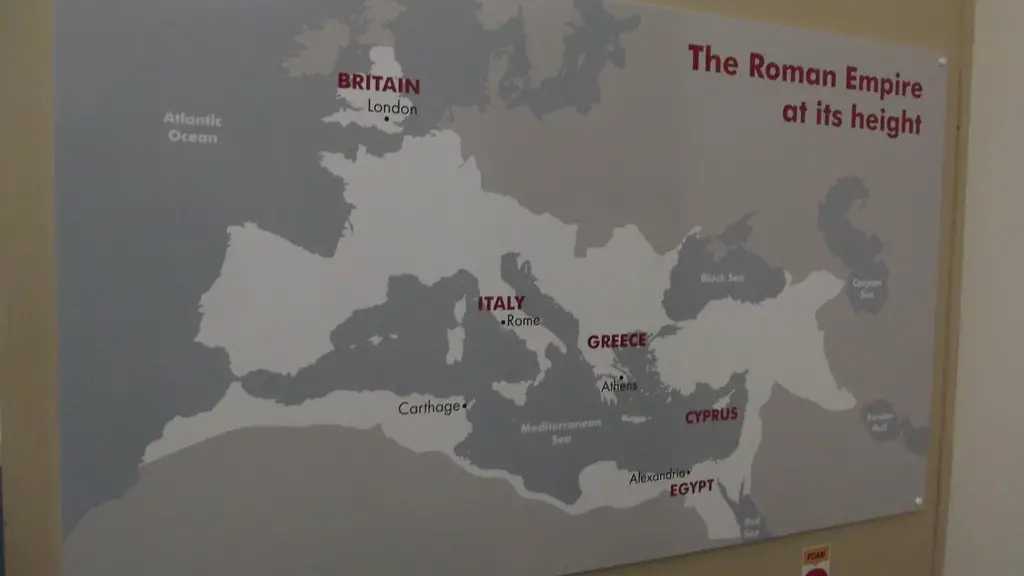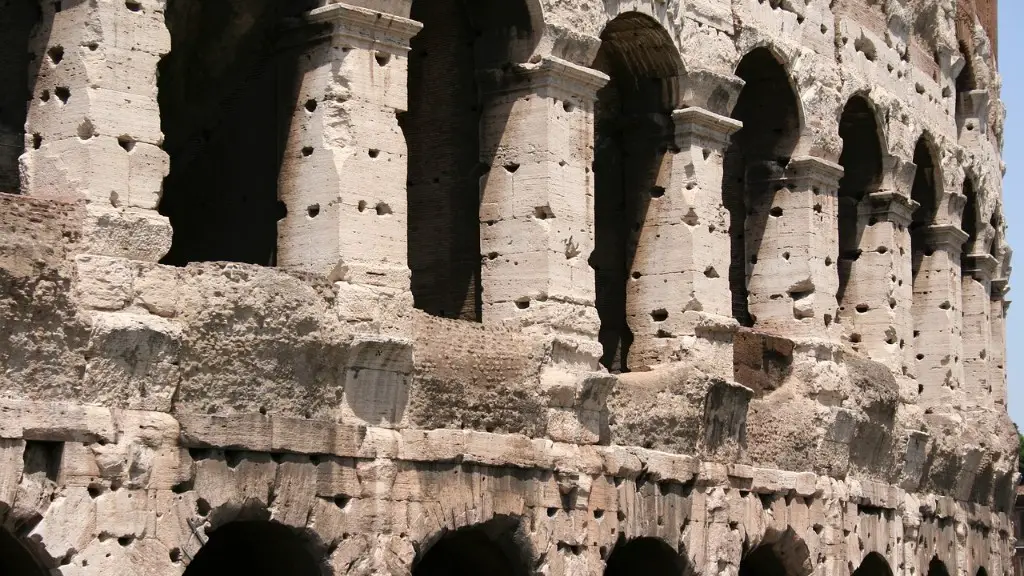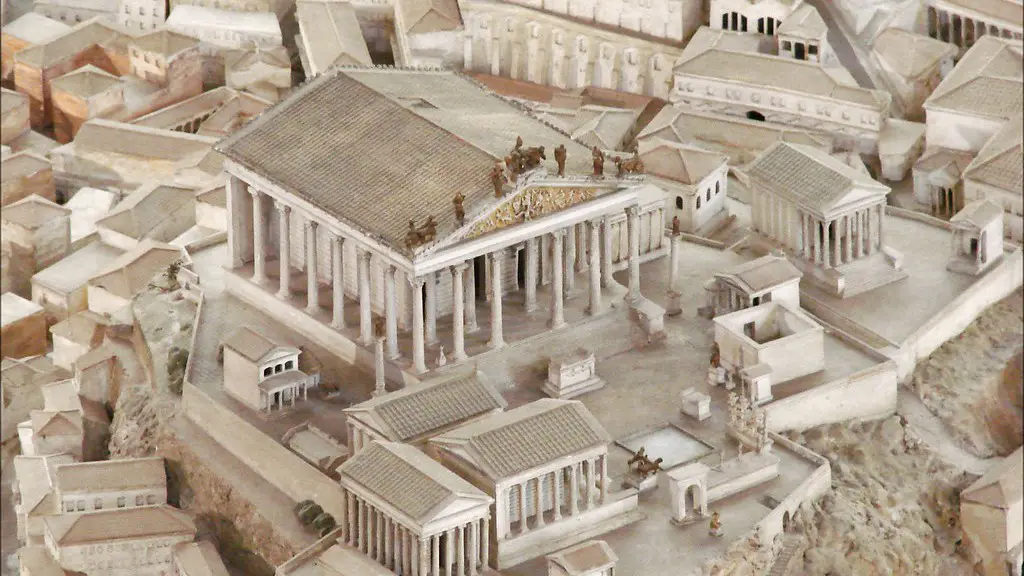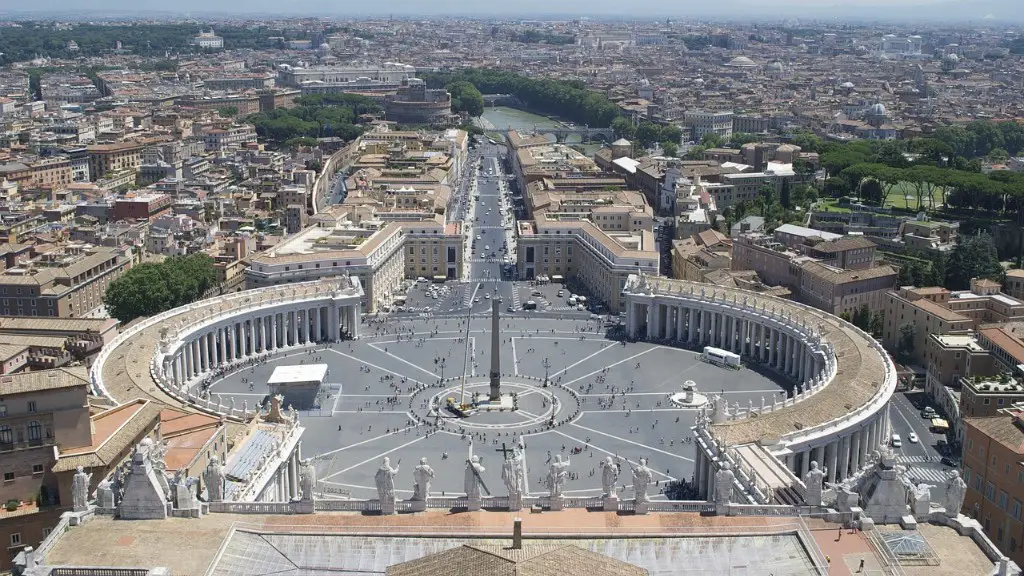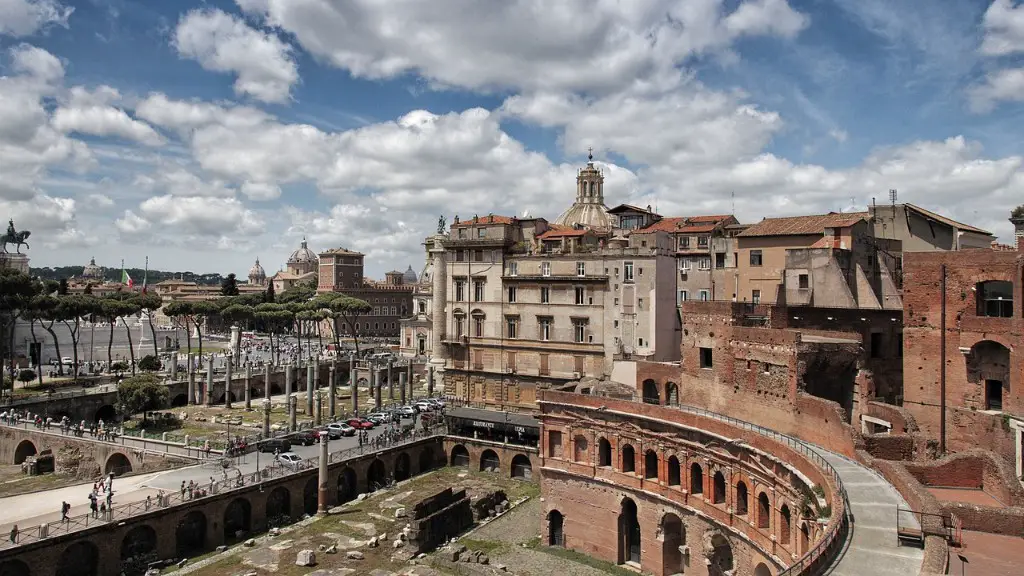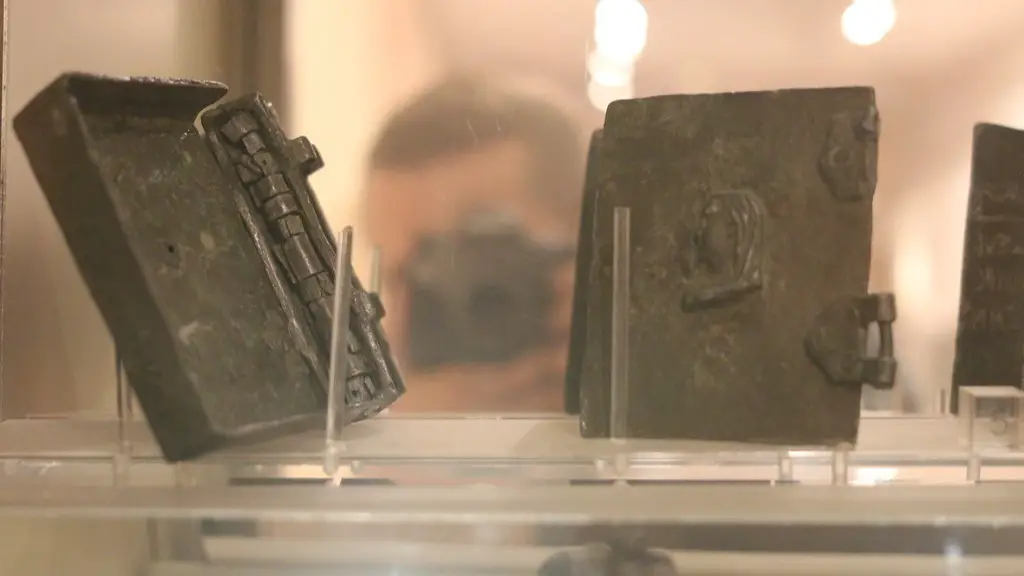As one of the world’s oldest forms of democracy, Ancient Rome had a unique type of government that laid the foundation for many of the democratic principles still in use today. The Roman Republic began in 509 BC and ended with the rise of the Roman Empire in 27 BC. During this time period, Rome had a unique form of government that allowed citizens to be involved in making decisions.
The basis of Roman democracy was the idea that each citizen, regardless of status, had a say in how the government was run. This was done through an institutionalised system of assemblies, or representative government, where citizens could vote on laws and elect officials. The assemblies would meet on a regular basis and consider any issues that were presented by the people or the Senate.
At the centre of Roman democracy was the Senate, a body of elected representatives of the Roman people. The Senate had the power to pass laws, approve or reject measures proposed by the assemblies, and appoint Governors and other officials. The Senate was the most powerful body in the Republic and had the authority to make decisions that would affect the whole of Rome.
The Roman Republic was unique in that it had no single ruler or monarch. Rather, the government was based on laws and the decisions of the people. This provided citizens with more opportunities to influence the government, as well as ensuring that all citizens had a voice in decision-making.
The Romans also had an organized system of tribunes, elected representatives who were responsible for looking after the interests of the people. Tribunes had the power to veto any laws they felt were unfair to the people, and they were also responsible for protecting the rights of citizens and preserving the peace.
In addition to the Senate and tribunes, Roman democracy also included a number of other aspects which improved democracy. For example, the Roman Republic was the first to introduce the concept of voting by secret ballot, allowing citizens to make their decisions without fear of reprisal. This was a major step forward for democracy, as it meant that citizens could express their opinions freely and without fear of being punished for their views.
The Romans also implemented several reforms that improved democracy, such as the Lex Ogulnia, which made it easier for citizens to participate in the government by granting them greater rights and freedoms. This meant that people had a much greater say in decisions that affected their lives, and it also made it easier for new people and groups to form without fear of retribution.
In conclusion, it is clear that the Ancient Romans had a number of unique systems and institutions in place which improved the democratic system in their time. The Senate, tribunes, secret ballot, and reforms such as the Lex Ogulnia all contributed to the growth and stability of the Roman Republic, and laid the foundation for many of the democratic principles we still rely on today.
Impact of Roman Democracy
The impact of Roman democracy on the world has been far-reaching. It laid the foundation for many of the democratic principles still in use today – from the secret ballot to freedom of speech – and its effects can be seen in modern democracies around the world. The Roman Republic not only provided citizens with more power and freedom, but it also showed how important it is to have a role in decision-making and that everyone’s voice should be heard.
The Roman system of democracy has been studied and admired by many modern thinkers and has even been used as an inspiration for democratic reforms. For example, the French Revolution was influenced by the political ideals of the Roman Republic and its focus on individual liberty.
Moreover, the way the Roman Republic achieved a system of government without a single ruler has been a model for many democracies today. This system is often referred to as “representative democracy” and has been adopted by countries across the world. It is based on the idea that citizens have a right to vote and elect their own representatives to make decisions on their behalf.
All in all, the Ancient Romans have left an indelible mark on the history of democracy and their legacy will continue to shape modern democracies for generations to come.
Significance of Roman Democracy
The Roman Republic was significant in many ways but its most important contribution is perhaps its impact on modern democracy. It showed the world that democracy can – and should – be a well-organized system where every person has the right to influence decision-making. Furthermore, it inspired many of the core principles of modern democracies, from secret ballot to the freedom of speech.
Moreover, the Roman Republic also demonstrated how important it is for citizens to have a say in government. It showed the importance of giving citizens a voice in decision-making and in setting the rules for how the government should function. This concept has been embraced by modern democracies and is reflected in the systems of representative government that are now commonplace.
Finally, the Roman Republic also highlighted the importance of equality in democracies. It showed that citizens should have equal rights and opportunities, regardless of their status. This has been a driving force behind modern democratic reforms, such as the emancipation of women and other traditionally oppressed groups in many countries.
In short, the Ancient Romans left a powerful legacy when it comes to democracy and its principles. Their system of government had a profound effect on the world and still serves as an example of what a truly democratic society can look like.
Early Roman Authorities
The early Roman authorities had a number of systems and institutions in place which improved democracy in Rome. The Senate was at the centre of all decision-making, and it gave citizens a voice in government. This was further reinforced by the Lex Ogulnia, which granted citizens greater rights and freedoms. In addition to the Senate, the Roman Republic also had an organized system of tribunes, elected representatives who were responsible for looking after the interests of the people. The tribunes had the power to veto any laws that were unfair to the people and were also tasked with protecting the rights of different groups of citizens.
The Romans also introduced the concept of voting by secret ballot, allowing citizens to make their decisions without fear of repercussions. This was a major step forward for democracy, as it made it easier for people to express their opinions without fear of being punished for their views. Furthermore, the Roman Republic also introduced new laws and reforms that gave citizens more power and freedoms. This included the Lex Ogulnia, which granted citizens greater rights and freedoms, as well as introducing laws to make it easier for new groups to form and express their opinions without fear of reprisal.
Overall, the early Roman authorities had a number of important systems and institutions in place which significantly improved democracy in ancient Rome. These reforms and legal systems not only allowed citizens to have a say in decision-making, but also improved the rights of different groups of citizens, making Rome one of the most democratic societies of its time.
Later Roman Democracy
As the Roman Republic grew stronger, it began to focus more on individual liberties and rights. This was seen in changes to laws, such as the Lex Ogulnia and the introduction of voting by secret ballot. Additionally, the status of Roman citizens changed over time, as freedwomen and lower-class citizens were given more rights and privileges. This progress was significant, as it allowed more people to participate in the government and ensured that there was more equality under the law.
The later Roman Republic also implemented laws and reforms to strengthen democracy. This included the Lex Rubria, which made it illegal to deny a citizen the right to vote or hold office, as well as the Lex Cloelia, which allowed women to vote and hold office. These reforms were important, as they gave citizens greater freedoms and ensured that everyone had the right to voice their opinions in the government.
Finally, the later Roman Republic also focused more on civil rights and freedoms. This was seen in the lex Gaius, which granted Roman citizens freedom from arbitrary arrest, and the lex Aelia, which set out rules for the judicial process. These reforms ensured that citizens’ rights were respected, and the government was held accountable for its actions.
Overall, the later Roman Republic had a number of important reforms and laws in place which improved democracy. These included reforms to give citizens greater power and freedoms, as well as laws which strengthened civil rights and ensured that the government was held accountable for its actions. Thus, the later Roman Republic significantly contributed to the growth of democracy in the ancient world.
Conclusion
The Ancient Roman Republic was a unique system of government that established the framework for modern democracies. This was done through a number of reforms, including the introduction of voting by secret ballot and laws that improved civil rights and freedoms. In addition, the Roman Republic also had an organized system of tribunes, the Senate, and reforms such as the Lex Ogulnia which all contributed to the growth of democracy and ensured that citizens had a say in how the government was run. Through their efforts, the Romans provided the world with an example of the principles of democracy, which have influenced modern democracies around the world.
